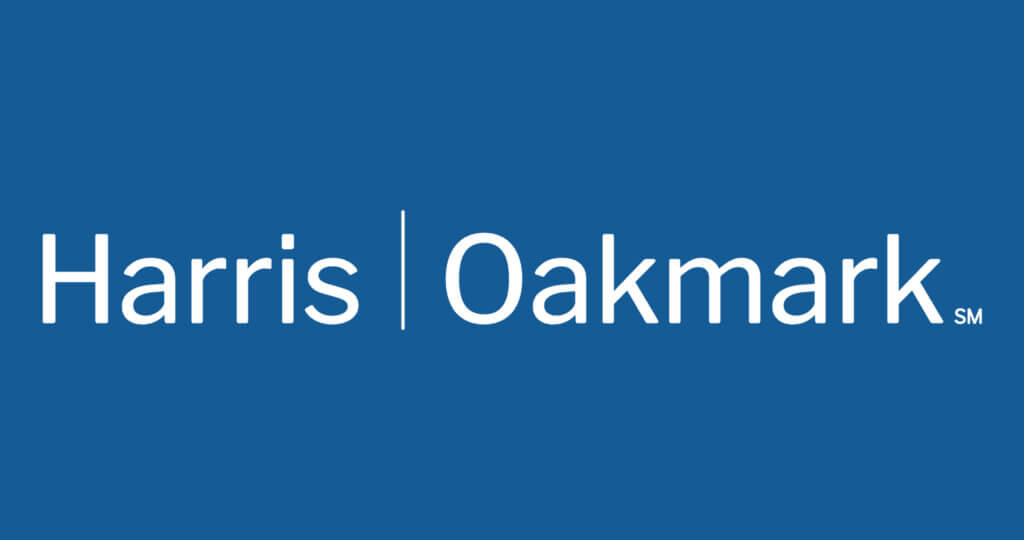Oakmark International Fund – Investor Class
Average Annual Total Returns 03/31/25
Since Inception 09/30/92 8.37%
10-year 3.56%
5-year 13.78%
1-year 2.80%
3-month 7.88%
Expense Ratio: 1.05%
Oakmark International Small Cap Fund – Investor Class
Average Annual Total Returns 03/31/25
Since Inception 11/01/95 8.48%
10-year 5.27%
5-year 16.84%
1-year 4.54%
3-month 8.24%
Expense Ratio: 1.33%
Expense ratios are from the Fund’s most recent prospectus dated January 28, 2024; actual expenses may vary.
Past performance is no guarantee of future results. The performance data quoted represents past performance. Current performance may be lower or higher than the performance data quoted. The investment return and principal value vary so that an investor’s shares when redeemed may be worth more or less than the original cost. The To obtain the most recent month-end performance data, view it here.
Despite the extremely turbulent first quarter in the global equity markets, both the Oakmark International and International Small Cap Funds had pleasing absolute and relative returns with the International Fund earning just under 8% for the quarter, and the International Small Cap Fund earning just over 8%. Please see individual fund details for the specifics on their respective performances.
Is the market structure finally unraveling?
We have argued that for far too long the weight of money invested in global equities was heavily skewed to a handful of U.S. growth names. As an example, Nvidia at its peak had a market cap of $3.6 trillion and Tesla was well above $1 trillion. This weight of money came from low valuation equities in both Europe and the U.S. In fact, because of this massive movement to these narrow areas, the U.S. weight in global indices reached a number greater than 70%, whereas the USA’s share of global GDP remained around 25%. Prior to this quarter, U.S. equities, led by the growth names, have outperformed non-U.S. equities by around 9% per annum over the last 10 years. As a result of this price movement and the continued acceptable performance of foreign companies’ earnings, a record valuation differential opened between U.S. and non-U.S. stocks. Though this has caused pain for investors in foreign stocks over the last decade, we believe that it bodes well for future results as the markets begin to “mean revert.” Even after the quarter’s price moves, which ate into a small amount of the valuation discount, we believe a large valuation imbalance is still present and will be the fuel for better long-term performance for international equities.
One other specific factor that helped first quarter performance for our international funds was the improvement in European share prices. We have long believed the European equities were—and still are—significantly undervalued as investors confuse the zip codes of a corporate headquarters with actual business performance. Nevertheless, three factors helped Europe’s first quarter performance, which caused a small portion of the value gap to close. First, earnings have continued to come through. Second, because of new leadership in Germany, the continent’s biggest economy has announced the relaxation of fiscal constraints which negatively impacted growth. And third, taking a cue from across the Atlantic, both the E.U. and the U.K. appear to be concerned about how excessive regulatory burdens impact economic growth. Hopefully, all three of these factors continue, which would be extremely instrumental in perpetuating the narrowing of the valuation gap between European equities and the rest of the world.
The “T” word
The incoming Trump administration has ushered in new economic policies. Many of these policies—less burdensome regulations, lower taxes, and energy security—can be seen as very “pro-growth.” However, along with these positive policies, a disruption in global trade has been triggered, owing to the introduction of tariffs (taxes) on goods coming into the U.S. Tariffs, if used correctly, can be utilized to level the economic playing field in cases where imports are flooding in from companies that are state subsidized or where foreign countries do not treat our exports the same as we treat their imports—oftentimes instituting significantly higher tariff rates than the U.S. However, the current administration desires to use tariffs beyond these purposes and instead utilize them as a form of industrial policy to encourage increased domestic investment as well as to erase our trade deficit. Because tariffs function as taxes on goods, in actuality, due to the proposed broad use of steep tariffs, we believe they will end up being not only inflationary, but worse, they could cause economic distortions, which leads to a high degree of uncertainty. This uncertainty means less economic confidence for both consumers and producers, which leads to LESS consumption and investment. Thus, we have seen this massive amount of uncertainty surrounding the tariff announcements and implementation being reflected negatively in global equity prices. As investors, we will investigate how these policies impact our companies’ valuations and thus must adjust valuations appropriately, to the degree possible, given the flow of information needed. We will continue to monitor these events closely and adjust where necessary.
In closing, thanks for your continued support. Despite continued “macro uncertainty,” we remain confident in our belief that fundamentals will continue to assert themselves and that our funds are well positioned for future success.
OPINION PIECE. PLEASE SEE ENDNOTES FOR IMPORTANT DISCLOSURES.
The securities mentioned above comprise the following preliminary percentages of the Oakmark International Fund’s total net assets as of 03/31/2025: Nvidia 0% and Tesla 0%. Portfolio holdings are subject to change without notice and are not intended as recommendations of individual stocks.
Access the full list of holdings for the Oakmark International Fund here.
The securities mentioned above comprise the following percentages of the Oakmark International Small Cap Fund’s total net assets as of 03/31/2025: Nvidia 0% and Tesla 0%. Portfolio holdings are subject to change without notice and are not intended as recommendations of individual stocks.
Access the full list of holdings for the Oakmark International Small Cap Fund here.
The information, data, analyses, and opinions presented herein (including current investment themes, the portfolio managers’ research and investment process, and portfolio characteristics) are for informational purposes only and represent the investments and views of the portfolio managers and Harris Associates L.P. as of the date written and are subject to change and may change based on market and other conditions and without notice. This content is not a recommendation of or an offer to buy or sell a security and is not warranted to be correct, complete or accurate.
Certain comments herein are based on current expectations and are considered “forward-looking statements.” These forward looking statements reflect assumptions and analyses made by the portfolio managers and Harris Associates L.P. based on their experience and perception of historical trends, current conditions, expected future developments, and other factors they believe are relevant. Actual future results are subject to a number of investment and other risks and may prove to be different from expectations. Readers are cautioned not to place undue reliance on the forward-looking statements.
This material is not intended to be a recommendation or investment advice, does not constitute a solicitation to buy, sell or hold a security or an investment strategy, and is not provided in a fiduciary capacity. The information provided does not take into account the specific objectives or circumstances of any particular investor, or suggest any specific course of action. Investment decisions should be made based on an investor’s objectives and circumstances and in consultation with his or her financial professionals.
The Oakmark International Fund’s portfolio tends to be invested in a relatively small number of stocks. As a result, the appreciation or depreciation of any one security held by the Fund will have a greater impact on the Fund’s net asset value than it would if the Fund invested in a larger number of securities. Although that strategy has the potential to generate attractive returns over time, it also increases the Fund’s volatility.
The Oakmark International Small Cap Fund’s portfolio tends to be invested in a relatively small number of stocks. As a result, the appreciation or depreciation of any one security held by the Fund will have a greater impact on the Fund’s net asset value than it would if the Fund invested in a larger number of securities. Although that strategy has the potential to generate attractive returns over time, it also increases the Fund’s volatility.
The stocks of smaller companies often involve more risk than the stocks of larger companies. Stocks of small companies tend to be more volatile and have a smaller public market than stocks of larger companies. Small companies may have a shorter history of operations than larger companies, may not have as great an ability to raise additional capital and may have a less diversified product line, making them more susceptible to market pressure.
Investing in foreign securities presents risks that in some ways may be greater than U.S. investments. Those risks include: currency fluctuation; different regulation, accounting standards, trading practices and levels of available information; generally higher transaction costs; and political risks.
Investing in value stocks presents the risk that value stocks may fall out of favor with investors and underperform growth stocks during given periods.
All information provided is as of 03/31/2025 unless otherwise specified.







